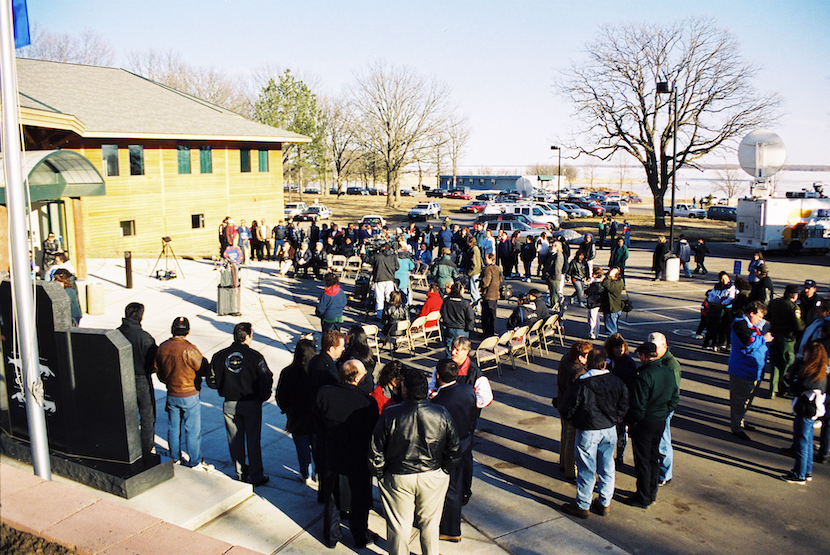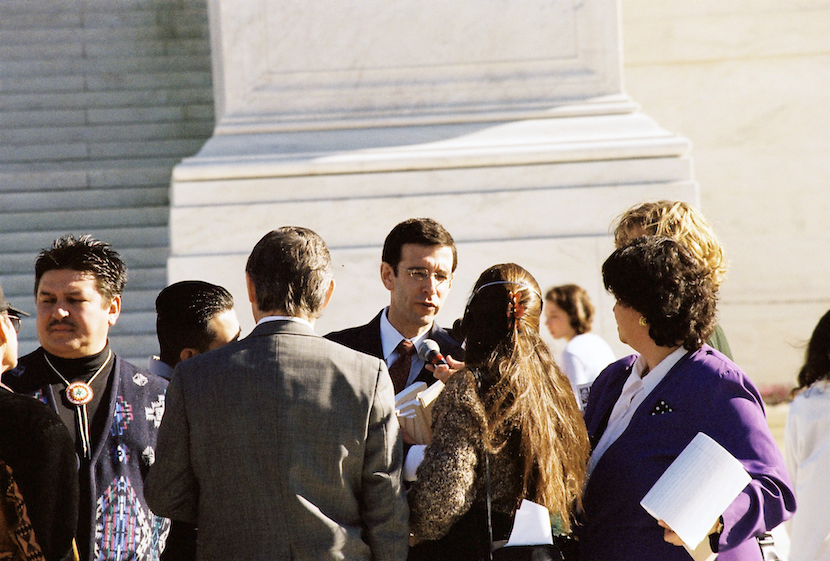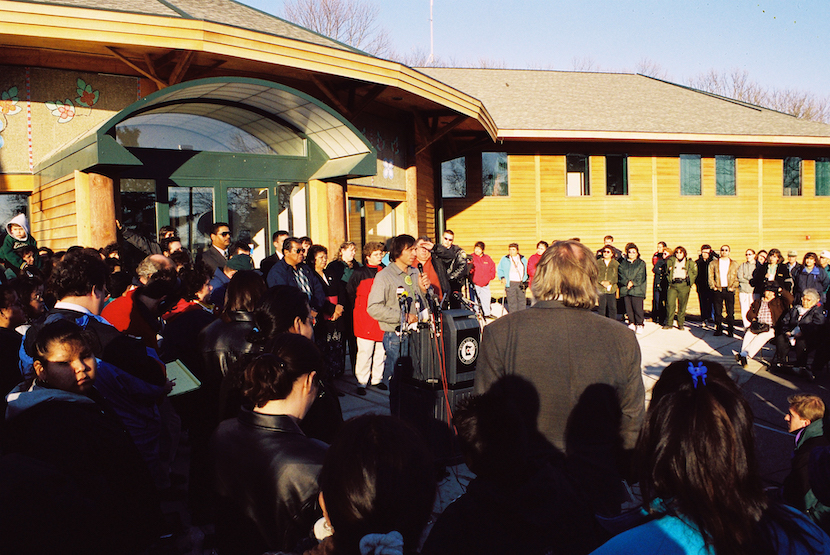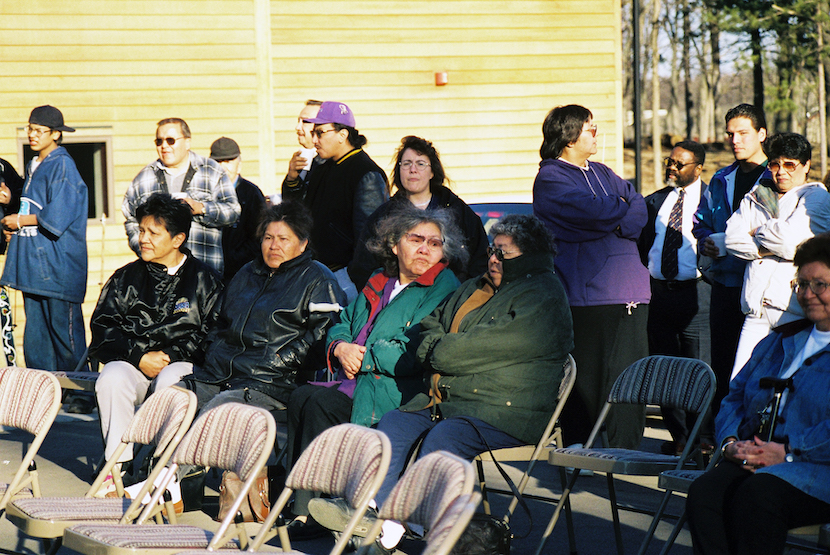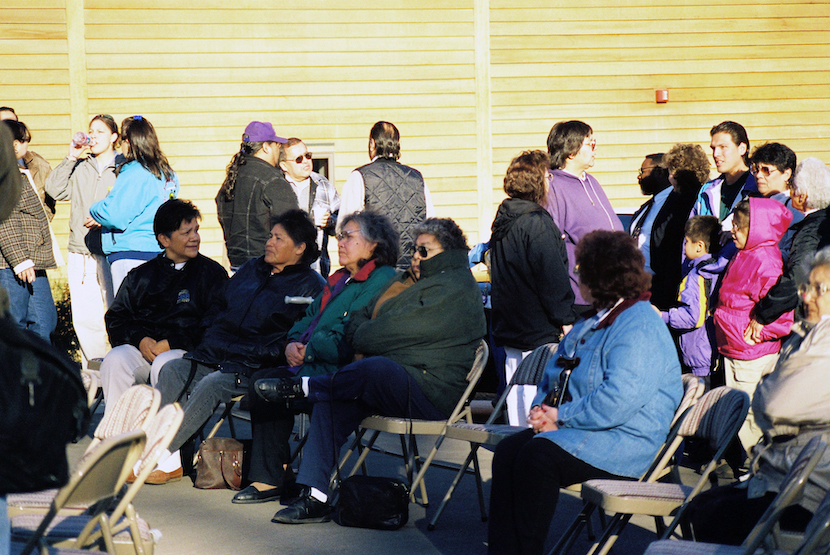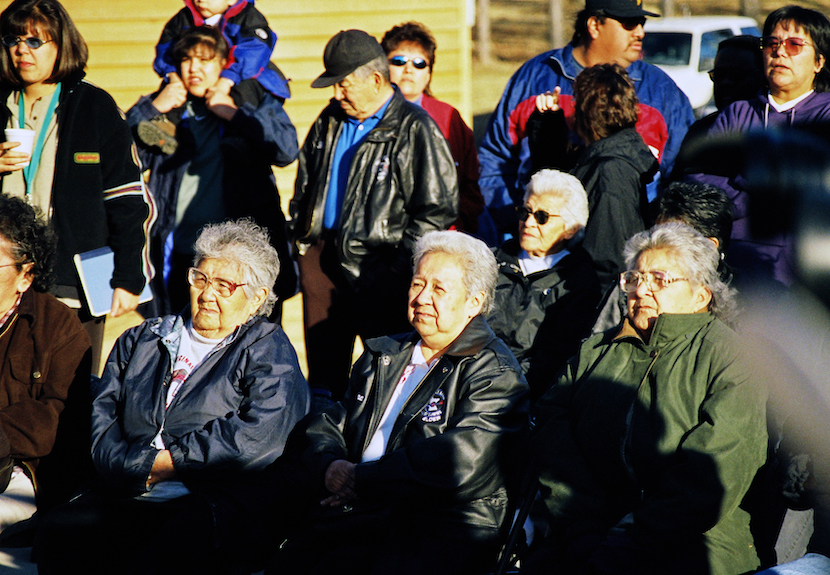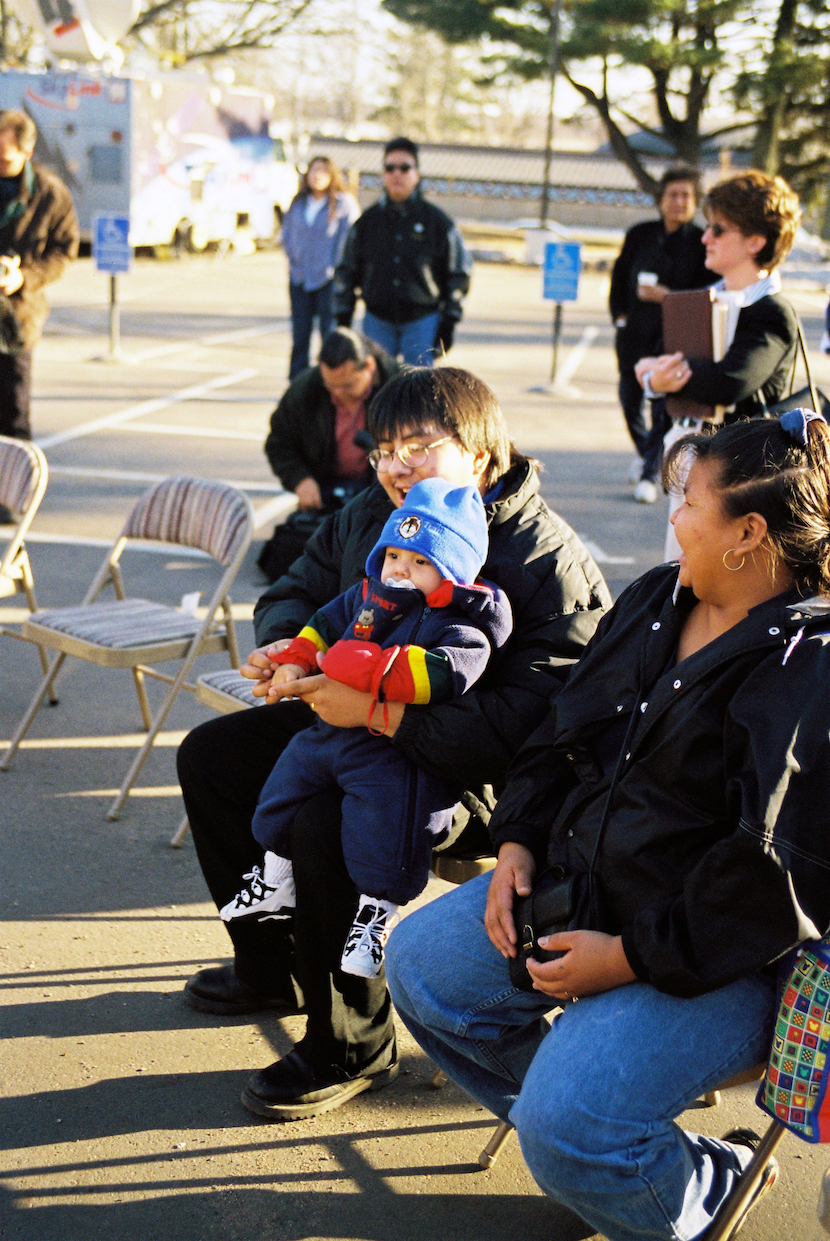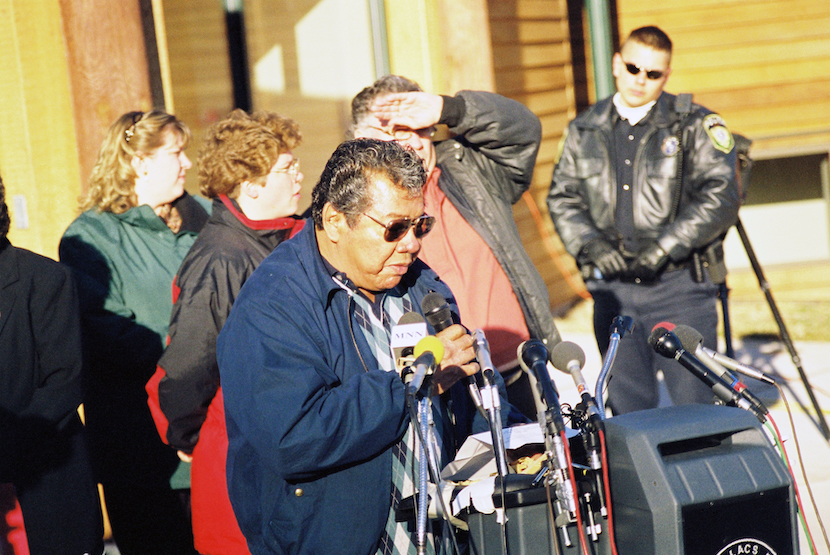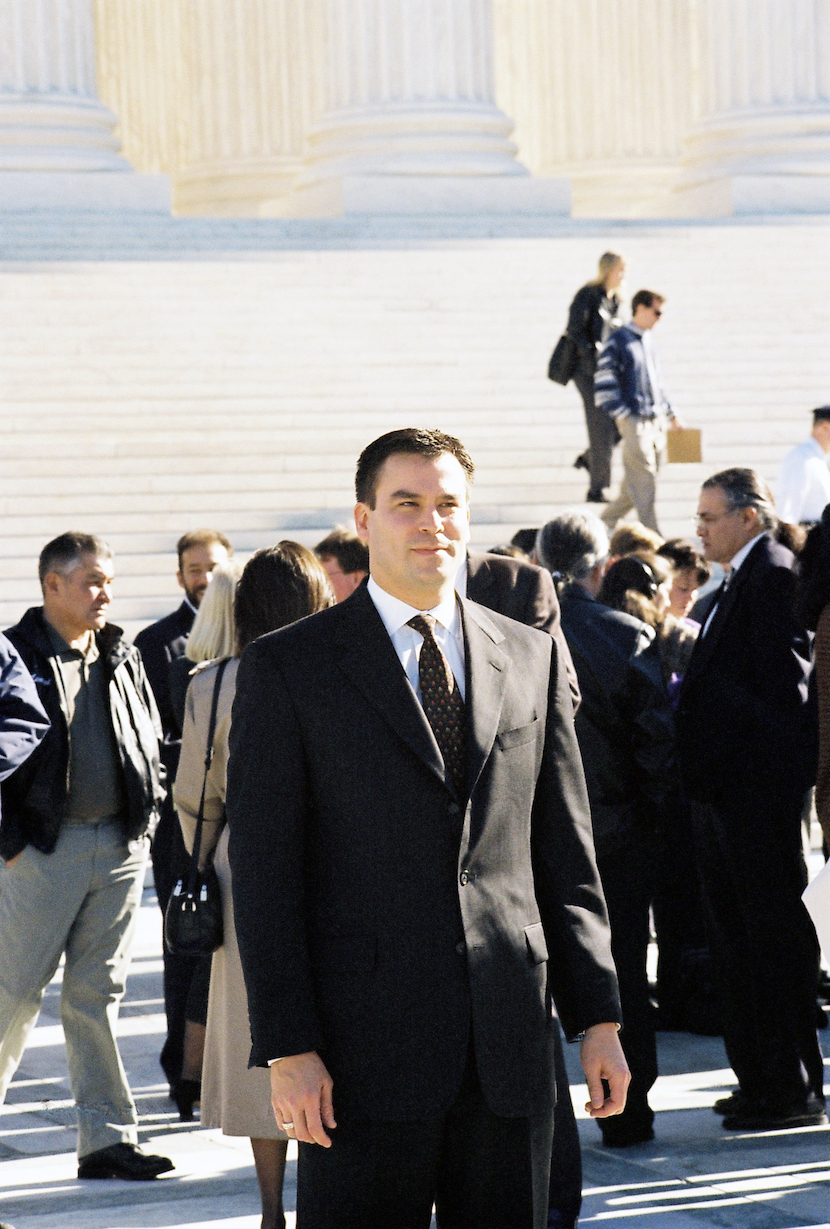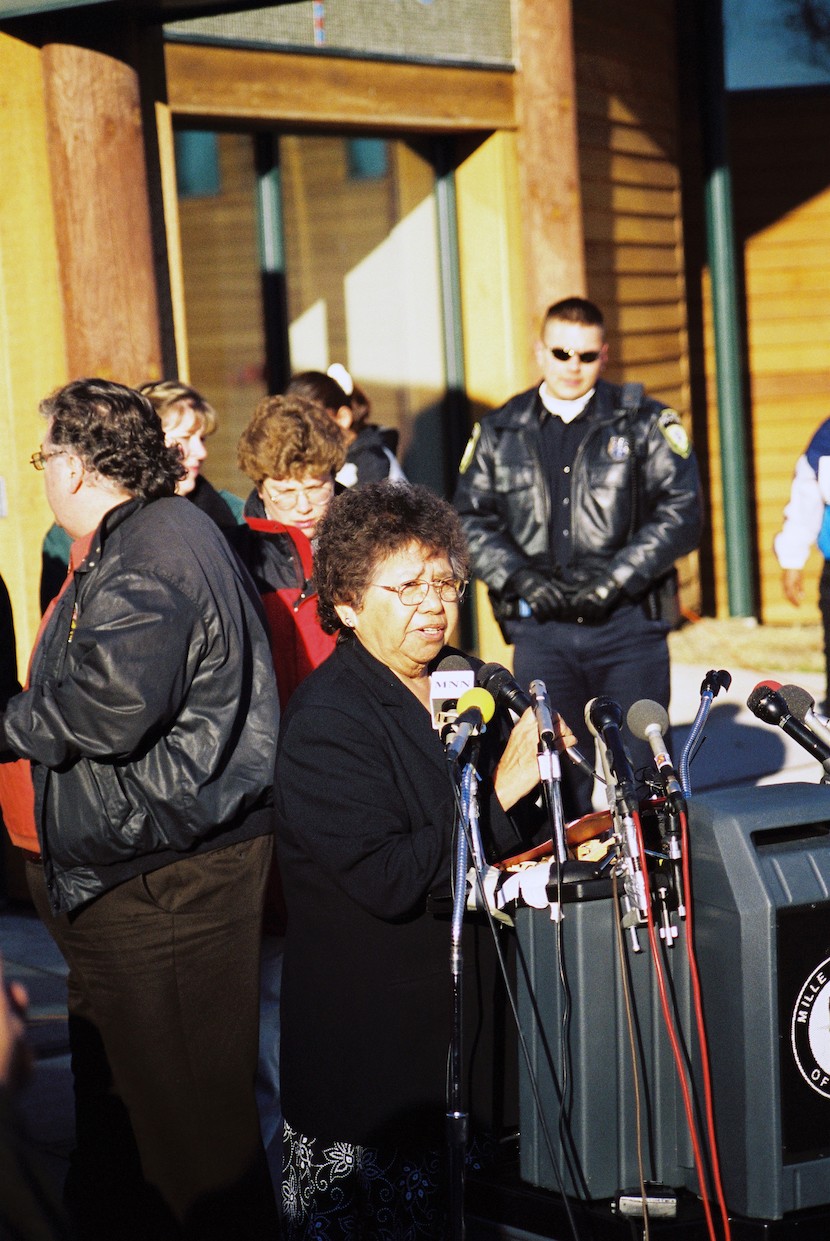
The verdict in the 1837 Treaty case, which was announced on March 24, 1999, confirmed what Band members had long believed: that the Ojibwe had a right to hunt, fish, and gather throughout the territory ceded to the U.S. government in the treaty.
But at the time, it was far from a sure thing — and the 5-4 decision was a victory by the narrowest of margins.
In a recent interview with the Mille Lacs Band's DNR archives, lead attorney Marc Slonim reflected on the hearing before the Supreme Court in Washington, D.C., on December 2, 1998, and on the decision that came several months later.
For Marc, the Court's decision to hear the case was not encouraging. After all, two federal courts (the 7th circuit in the Wisconsin case in the 1980s, and the 8th circuit in the Minnesota case in the 1990s) had affirmed those rights, and the Supreme Court normally only takes cases that it questions.
It takes four justices to agree to hear a case, and they usually do so because they see something wrong with the decision. "That was probably the worst day of my professional career," Marc said. "We had won in the Eighth Circuit, so that wasn't a very good sign."
The Supreme Court hearing gave many on the Band's side cause for concern, especially the justices' aggressive examination of the U.S. Attorney who argued with Marc on behalf of the bands.
After the hearing, the opponents of the bands gathered on the front steps of the Supreme Court building. "They were all high fiving each other," said Marc. "They were sure that they had won. They were all smiles, couldn't be happier, and we were a little more serious. I didn't really know how it would come out. I couldn't really count five votes, which is what we needed."
Indian law experts predicted a loss for the bands but argued how bad it would be — 6-3, 7-2, or 8-1.
But the Ojibwe had a quiet confidence. "All the Ojibwe people who were at the argument said, 'We're gonna win this case,'" Marc recalled, choking up at the memory. "They knew. I don't know how they knew, but they knew."
On March 24, Marc was told about the decision by a Minnesota Public Radio reporter who called him at home. It was early morning in Seattle, and Marc was just getting up.
The reporter asked for a comment on the decision, and Marc had to ask her what the decision was. She told him the bands had won.
"I was just relieved," Marc said. "It had been such a long fight, and there was so much at stake. Just relief." Twenty years later, the memory brought back the same emotions.
Don Wedll was Mille Lacs Band DNR Commissioner during the case, and he recently shared some of his memories of the long process that led to the filing of the case in 1990.
In 1982, Chairman Art Gahbow directed Don to review the treaties and determine how best to pursue recognition of the Band's treaty rights.
This was before the Band opened its two casinos, so the money to pay the attorneys needed to come from other sources of revenue.
That was no easy task, but by 1990 the money was there, and the decision was made to pursue the case.
It also took a lot of lobbying to convince the U.S. to side with the Band in the case, Don said.
When news of the verdict came in, Don remembers being in Marge's office. Bonita Sam (now White) was at the front desk and called back to Marge, saying there was someone from the Department of Justice on the phone saying the Band had won the case."
In typical low-key fashion, Marge simply told Bonita to announce it on the intercom.
A press conference was put together, and Band members, allies, and even some former opponents gathered in front of the government center to celebrate the victory.
For Don, the significance of the decision was clear: "Your grandparents said you had these rights, and everybody discounted that, but this proves that they were right."
